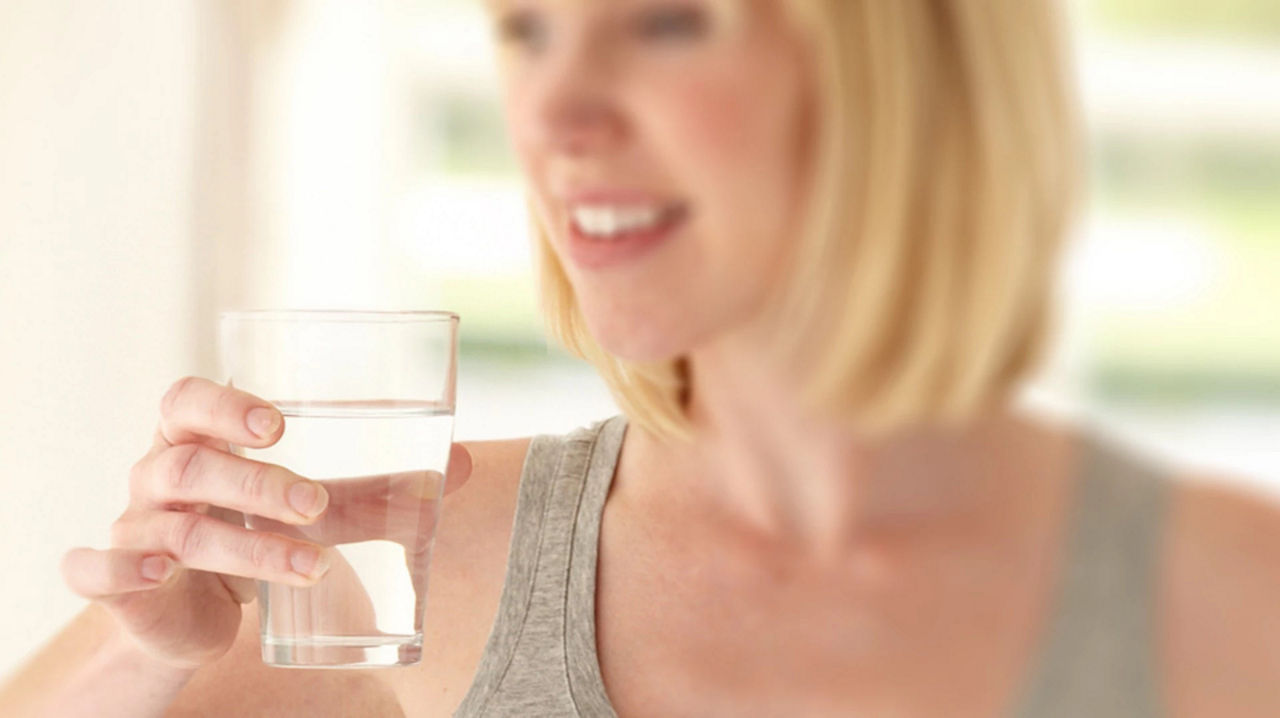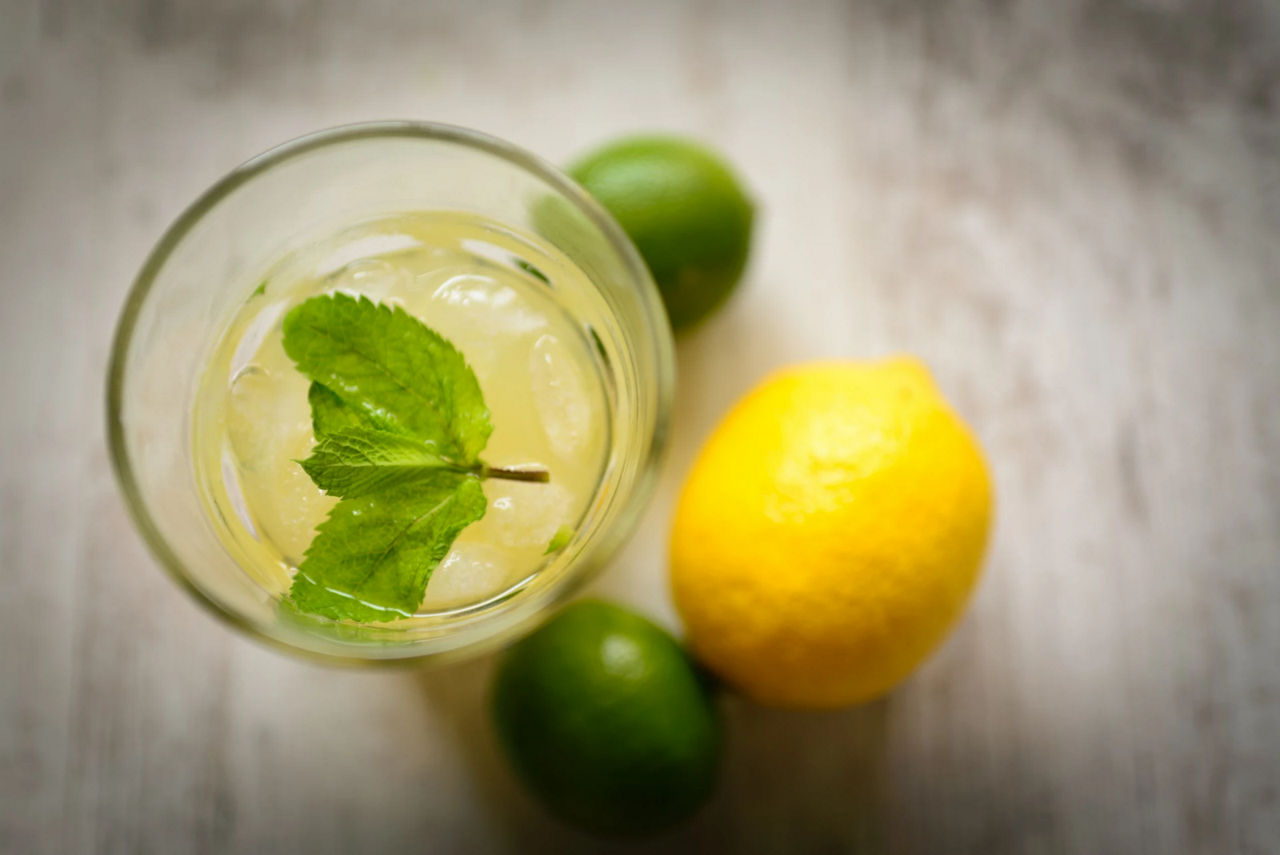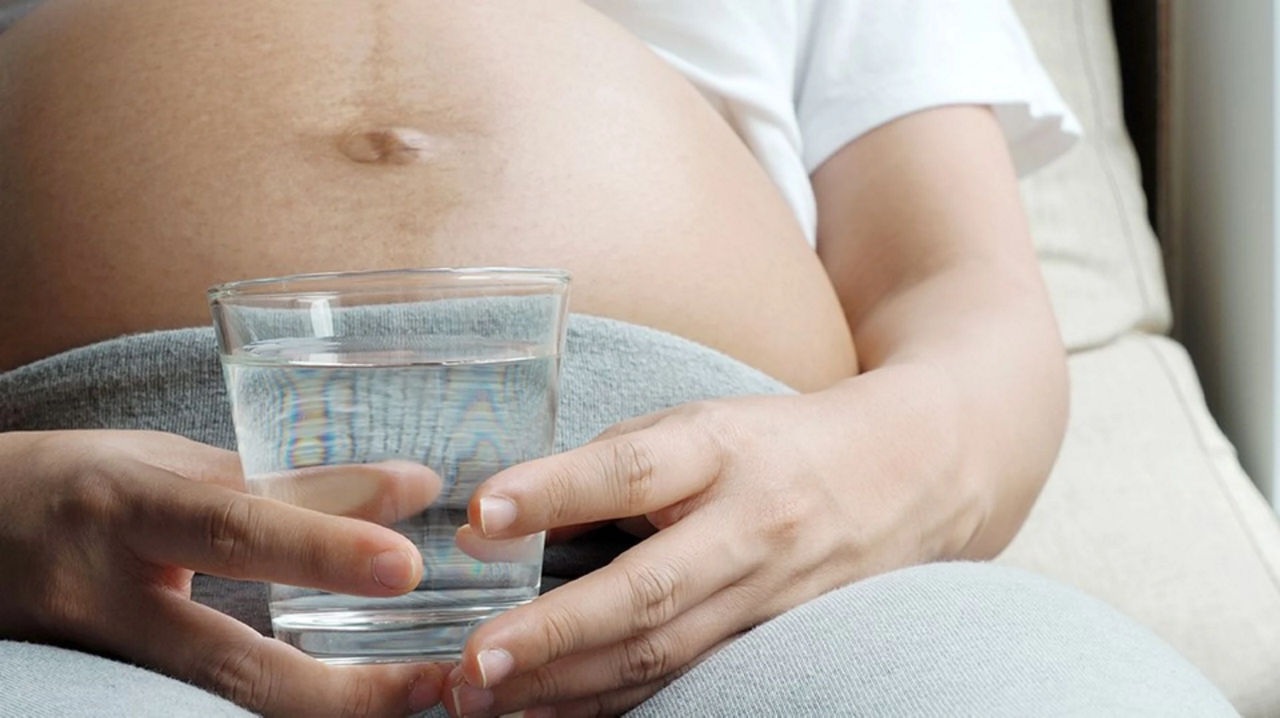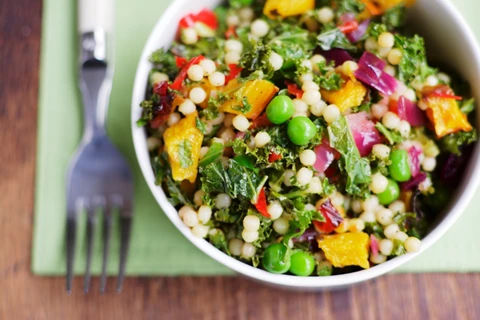We may not think of fluids as a significant part of our diet, but an adequate intake of water is essential for your own health and your baby’s development. However, if you have morning sickness, keeping fluids down can be tricky.
How much water should you drink during pregnancy?

Learn the importance of staying hydrated for both and your baby, how much you should be drinking each day, the best things to drink, and how to stay hydrated if you have morning sickness.

The importance of staying hydrated during pregnancy
A huge proportion of the human body is made up of water. It keeps our complex systems working properly, while helping us absorb nutrients and flush out toxins1.
During pregnancy, the increased demands on your body mean you need more water than usual to meet these increased requirements and avoid dehydration2.
Some of the most crucial support systems for your baby involve a significant amount of water. For a start, your blood volume that supplies their oxygen, for instance, increases by 50%3. The amniotic fluid, which provides nourishment and cushioning for your baby while supporting their growth, is also made up of mostly water4.
Getting sufficient fluids each day will help to maintain these life-sustaining systems, while stopping you becoming dehydrated.
In combination with a diet rich in fibre, fluids can help reduce your likelihood of constipation, and the piles (haemorrhoids) that sometimes come along with it5.
How much should you drink when you’re pregnant?
Although your need for water increases during pregnancy, there is no single recommended amount because every person is different. Various factors including body weight and activity level affect how much you’ll need per day2.
The Department of Health recommend that we drink around 6-8 glasses of fluid a day (approximately 1.2 litres)6.

What should you drink when you’re pregnant?
The best things to drink during pregnancy include water (either tap, sparkling or still), milk, fruit juices and sugar free squash. Juice can be high in sugar, but providing it’s pure fruit, one 150ml glass can also count as part of your daily 5-a-day fruit and vegetables intake2. If possible, opt for juices that contain vegetables such as kale or spinach which tend to be lower in sugar. Or create your own fruit infused waters to sip on by adding slices of lemon, orange or a handful of berries.
Soup also counts, and can provide a good serving of beneficial nutrients too7. Just be mindful of how much salt it contains. Too much salt can have the opposite effect and dehydrate you.
Drinking alcohol during pregnancy can be harmful for your baby so you should avoid it if you’re pregnant or planning to become pregnant.
You should also limit your intake of caffeine to no more than 200mg per day8. Caffeine can act as a diuretic, increasing your need to urinate, and can also affect your baby. Because of this, it’s on the list of foods to limit or avoid during pregnancy.
Should you drink tonic water or sparkling water during pregnancy?
During pregnancy, drinking fizzy drinks that contain a lot of sugar, like tonic water, shouldn’t cause any harm, but they are often high in calories and can lead to weight gain. With little nutritional value, it’s best to avoid them or try a healthier alternative6. As sparkling water does not contain sugar, it’s a good substitute if you don’t like the taste of plain water.
Staying hydrated with morning sickness
If you’re struggling to keep fluids down due to morning sickness or an upset stomach, try to take small sips regularly rather than large gulps. Even small amounts add up and can lower your risk of becoming dehydrated; so start by taking small sips and gradually increase the amount if you can7.
You may also find that drinking fluids at room temperature, rather than ice cold, helps. Some women find that soups and broths are easier to keep down, while others stay hydrated with milk or sugar-free squash. It’s a case of trial and error, but any fluid is better than no fluid at all.
In prolonged cases, let your GP or midwife know. They may prescribe something to ease your sickness or, in extreme cases, admit you to hospital to receive fluids through an IV drip.
Follow these tips to stay hydrated during pregnancy
- Keep a glass of water next to your bed to drink first thing in the morning.
- Keep a bottle of water handy to sip (and refill) regularly throughout the day.
- Try infusing water with different flavours to make it more interesting: a squeeze of lemon, lime or some fresh mint leaves are just a few refreshing options.
Related Topics
related articles
Read more

Get in touch with our Careline experts
Our nutritionists and feeding advisors are always on hand to talk about feeding your baby. So if you have a question, just get in touch
- Popkin BM et al. Water, hydration and health. Nutr Reviews 2010;68(8):439-58.
- Agostoni CV et al. Scientific opinion on dietary reference values for water. EFSA Journal 2010;8(3):1459.
- Hytten F. Blood volume changes in normal pregnancy. Clin Haematol 1985;14(3):601-12.
- NHS Choices. What is the amniotic sac? [Online]. 2018. Available at: https://www.nhs.uk/chq/Pages/2310.aspx?CategoryID=54 [Accessed April 2020]
- NHS Choices. Piles in pregnancy [Online]. 2020. Available at: www.nhs.uk/Conditions/pregnancy-and-baby/Pages/piles-haemorrhoids-pregnant.aspx [Accessed April 2020]
- NHS Choices. Water, drinks and your health [Online]. 2018. Available at: www.nhs.uk/Livewell/Goodfood/Pages/water-drinks.aspx [Accessed April 2020]
- NHS Choices. Dehydration [Online]. 2019. Available at: https://www.nhs.uk/conditions/dehydration/ [Accessed April 2020]
- NHS Choices. Foods to avoid in pregnancy [Online]. 2020. Available at: https://www.nhs.uk/conditions/pregnancy-and-baby/foods-to-avoid-pregnant/ [Accessed April 2020]
Last reviewed: 28th July 2020
Reviewed by Nutricia’s Medical and Scientific Affairs Team



